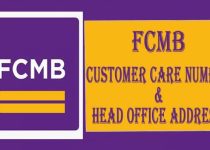How To Apply for Insurance Your Goods, Shops, and Business in Nigeria as a Businessman
As a businessman in Nigeria, safeguarding your goods, shops, and business operations is of utmost importance. Unforeseen events such as theft, fire, natural disasters, or liability claims can disrupt your business and cause financial setbacks. That’s where insurance comes in. Insurance provides a safety net, offering financial protection and peace of mind in the face of unexpected events.
However, applying for insurance for your goods, shops, and business can be a complex process. It requires careful consideration of your specific needs, thorough research on insurance providers, and an understanding of the various coverage options available. This guide aims to simplify the process and provide you with valuable insights on how to apply for insurance for your goods, shops, and business in Nigeria.
In this guide, we will walk you through the essential steps involved in securing insurance coverage. We will discuss the importance of assessing your insurance needs, researching reputable insurance providers, consulting with insurance professionals, gathering necessary information, requesting insurance quotes, completing the application, undergoing the underwriting process, and finally, policy issuance and payment.
Table of Contents
Assess Your Insurance Needs
As a businessman in Nigeria, it’s essential to protect your business against risks that may occur at any time. The best way to do this is by taking out insurance policies for your goods, shops, and business. Before you can apply for insurance, you need to assess your insurance needs to determine the type of policy that suits your business. Here are some factors to consider when assessing your insurance needs:
- Business Type: The type of business you run determines the insurance policies you need. For instance, if you’re in the manufacturing business, you may need a product liability insurance policy.
- Business Size: The size of your business determines the amount of insurance coverage you need. If you own a large business, you may need higher coverage than a small business.
- Business Risks: Identify the risks associated with your business. For example, if your business involves the use of heavy machinery, you may need a policy that covers accidental damage.
- Budget: Consider your budget when choosing an insurance policy. Choose a policy that offers adequate coverage while still fitting within your budget.
By assessing your insurance needs, you can determine the type of policy that’s right for your business and ensure you’re protected against unforeseen risks.
Types of Insurance Policies Available for Nigerian Business Owners
As a business owner in Nigeria, there are various insurance policies that you can consider to protect your business and assets. Some of the most common insurance policies available in Nigeria include:
- Property Insurance: This type of insurance covers damage or loss to your property caused by natural disasters, theft, fire, or other perils.
- Liability Insurance: This type of insurance protects your business from legal liabilities that may arise due to third-party damages or injuries.
- Business Interruption Insurance: This insurance policy covers your business’s lost income or revenue due to events such as fire or natural disasters that interrupt your business operations.
- Product Liability Insurance: This policy protects your business from legal liabilities due to any damages or injuries caused by your products.
- Motor Insurance: This type of insurance covers damages or loss caused to your business vehicles due to accidents or theft.
- Professional Liability Insurance: This policy protects your business from claims that arise due to any professional negligence or errors that you or your employees commit while offering professional services.
- Group Health Insurance: This policy provides health coverage for your employees, helping you attract and retain talented employees.
Before choosing an insurance policy for your business, it’s essential to assess your business’s specific needs and risks. By understanding your business’s unique risks, you can determine the right type and amount of coverage that you need to protect your business effectively.
Read Also: How To Get a Loan Without BVN in Nigeria
How to Determine the Right Insurance Policy for Your Business
Determining the right insurance policy for your business can be overwhelming, but it is essential for the success and security of your venture. Here are some factors to consider when choosing an insurance policy for your business:
Identify Your Risks
Take an inventory of the potential risks and threats to your business. This can include theft, fire, natural disasters, lawsuits, and more. Understanding your risks can help you determine which policies will offer the most comprehensive coverage for your business.
Research Available Policies
Research the types of insurance policies available for Nigerian business owners. Some common types include property insurance, liability insurance, and workers’ compensation. Understand the coverage, exclusions, and deductibles associated with each policy before making a decision.
Consider Your Industry:
Different industries face different risks and require different types of coverage. For example, a restaurant owner may require insurance for the spoilage of food, while a tech company may need coverage for intellectual property theft. Choose policies that align with the specific needs of your industry.
Evaluate Your Budget:
Consider how much you can afford to spend on insurance premiums. While it may be tempting to go for the cheapest option, it is essential to ensure that your policies offer enough coverage to protect your business fully.
Consult with an Insurance Agent:
An insurance agent can help you navigate the complex world of insurance policies and select the right coverage for your business. They can also offer advice on policy bundling, which can help you save money.
Tips for Applying for Insurance for Your Goods and Shops in Nigeria
Applying for insurance for your goods and shops in Nigeria can seem like a daunting task. However, it doesn’t have to be if you follow these tips:
1. Shop around for the best insurance policy
Don’t just settle for the first insurance policy that comes your way. Take the time to research and compare different policies. This will help you find the best coverage for your needs and budget.
2. Understand the terms and conditions
It’s important to read and understand the terms and conditions of your insurance policy before signing up. This will help you know what is covered, what is not covered, and the extent of your coverage.
- Work with a reputable insurance company
Ensure that you are working with a reputable insurance company with a track record of paying claims promptly. Do your research and ask for recommendations from other business owners.
4. Get the right coverage
Make sure you get the right coverage for your business needs. This may include coverage for property damage, theft, liability, and business interruption.
5. Provide accurate information
Be honest and accurate when providing information about your business and the items you want to insure. Failure to do so may result in your claims being denied.
6. Keep records and receipts
It’s important to keep records and receipts of all your insured items. This will help speed up the claims process in case of damage or loss.
7. Review your policy periodically
Review your insurance policy periodically to ensure that you have adequate coverage. This will help you make adjustments to your coverage as your business grows and changes.
Essential Documents Required for Business Insurance Applications in Nigeria
When you decide to apply for insurance coverage for your business, there are certain documents you need to provide to the insurance company to help them evaluate your risk level and determine your insurance premium. The following are some essential documents you’ll need to have on hand when applying for business insurance in Nigeria:
- Business registration documents: You’ll need to provide the insurance company with proof that your business is registered and legally operating in Nigeria. This can include your business registration certificate, tax identification number, and other relevant documents.
- Financial statements: Insurance companies will want to see your business’s financial statements, such as income statements, balance sheets, and cash flow statements. These documents help them evaluate your financial health and determine your risk level.
- Inventory list: If you’re applying for insurance coverage for your goods or inventory, you’ll need to provide an inventory list detailing the type and value of the items you want to insure.
- Property information: If you’re applying for insurance coverage for your business property, you’ll need to provide details about the property, such as its location, size, and condition.
- Safety measures: Insurance companies may ask for details about any safety measures you have in place to protect your business from risks such as fire, theft, or natural disasters. This could include security systems, fire alarms, sprinkler systems, and more.
- Previous insurance policies: If you’ve had previous insurance policies for your business, you’ll need to provide details about those policies and any claims you’ve made in the past.
By providing these essential documents to the insurance company, you’ll help them make an informed decision about your insurance coverage and ensure that you have the protection you need for your business, goods, and shops. Be sure to have all the necessary documents ready when you apply for insurance coverage to make the process smoother and quicker.
Request Insurance Quotes
Once you have assessed your insurance needs and determined the right insurance policy for your business, it’s time to request insurance quotes. This will help you compare prices and choose the best insurance provider that offers a policy that meets your needs and budget.
To request insurance quotes in Nigeria, you can start by contacting insurance brokers, and agents, or directly contacting insurance companies. Most insurance providers have online platforms that allow you to request quotes conveniently.
When requesting quotes, ensure that you provide accurate information about your business, the type of insurance you need, and any other relevant information that will help the insurer determine the risks involved and provide an accurate quote.
Compare the quotes you receive from different insurance providers and ensure that you carefully review the policy details, terms, and conditions before making a final decision. Don’t be swayed by lower prices alone, as you may end up compromising on the quality of coverage.
Read Also: How to Become Kuda Bank Aggregator and Kuda Bank Agent
Policy Issuance and Payment
After going through the insurance application process and choosing the right policy for your business, the final steps involve policy issuance and payment. Once your application has been approved, you will receive a policy document outlining the terms and conditions of the coverage you have chosen.
It is important to read through this document carefully and ask any questions you may have before signing. Make sure you understand what is covered and what is not, as well as the duration of the policy and the premium amount you are required to pay.
The premium payment can usually be made in one lump sum or spread out over several installments, depending on the insurer’s payment policies. Make sure to keep up with the payments to avoid the policy being canceled for non-payment.
In the event of a claim, make sure to notify your insurer as soon as possible and provide any necessary documentation or evidence to support your claim. The insurer will assess the claim and determine whether it is covered under your policy.
Overall, obtaining insurance for your goods, shops, and business in Nigeria can help protect you from financial losses in the event of unforeseen events. By following the steps outlined in this post, you can make an informed decision about the right insurance policy for your business and ensure that you have adequate coverage to protect your assets.
FAQS
What insurance is most important for a business?
The most important insurance for a business depends on its specific needs and industry. However, some common types of insurance that are often essential for businesses include:
- Property Insurance: Protects against damage or loss of physical assets, such as buildings, equipment, and inventory.
- Liability Insurance: Covers legal liabilities arising from third-party injuries, property damage, or negligence claims.
- Business Interruption Insurance: Provides coverage for lost income and ongoing expenses if the business is temporarily unable to operate due to a covered event.
- Workers’ Compensation Insurance: Compensates employees for work-related injuries or illnesses and protects the business from related legal claims.
- Professional Liability Insurance: Covers professionals against claims of negligence, errors, or omissions in the services they provide.
- Cyber Liability Insurance: Protects against losses caused by cyberattacks, data breaches, or other cyber-related incidents.
How do I register as an insurer in Nigeria?
To register as an insurer in Nigeria, you need to follow the guidelines and requirements of the National Insurance Commission (NAICOM). The process typically involves the following steps:
- Prepare the necessary documentation, including a duly completed application form, business plan, financial projections, and other supporting documents.
- Meet the capital requirements set by NAICOM for the type of insurance business you intend to operate.
- Submit your application and required documents to NAICOM for review and assessment.
- Undergo a thorough evaluation, which may include financial and solvency assessments, fit and proper checks of key personnel, and a review of your business plan.
- If your application is approved, you will be issued a license to operate as an insurer in Nigeria, subject to compliance with ongoing regulatory requirements.
Who regulates the insurance business in Nigeria?
The insurance industry in Nigeria is regulated by the National Insurance Commission (NAICOM). NAICOM is the primary regulatory authority responsible for overseeing and supervising insurance companies, intermediaries, and other entities engaged in insurance business in Nigeria. Its mandate is to ensure the stability, soundness, and growth of the insurance industry while protecting the interests of policyholders and promoting public confidence in the sector.
What is the legal framework for the insurance business in Nigeria?
The legal framework for insurance business in Nigeria is primarily governed by the Insurance Act 2003. This Act provides the legal framework for the establishment, regulation, and operation of insurance companies, insurance intermediaries, and other entities involved in insurance activities. It sets out the licensing requirements, capitalization requirements, solvency regulations, consumer protection provisions, and other rules and regulations that govern the insurance industry in Nigeria.
What are the six compulsory insurances in Nigeria?
In Nigeria, there are six compulsory insurances that businesses and individuals are required by law to have. These include:
- Motor Third Party Liability Insurance: Compulsory for all motor vehicle owners and covers liability for bodily injury or death of third parties arising from the use of a motor vehicle.
- Employer’s Liability Insurance: Mandatory for employers to provide compensation to employees for work-related injuries, diseases, or death.
- Group Life Insurance: Required for employers with a minimum of five employees, providing life insurance coverage to employees.
- Health Care Professional Indemnity Insurance: Compulsory for healthcare professionals, covering liabilities arising from professional negligence or malpractice.
- Builders’ Liability Insurance: Mandatory for all construction projects exceeding a certain value, providing coverage for liabilities arising from construction-related accidents or damages.
- Occupiers’ Liability Insurance: Compulsory for owners or occupiers of public buildings to cover liabilities for bodily injury or death of visitors on the premises.
Conclusion
As a businessman in Nigeria, it is essential to ensure that your goods, shops, and business are insured to protect yourself against potential financial loss. By assessing your insurance needs, understanding the types of policies available, and determining the right insurance policy for your business, you can protect your investments and secure your financial future.
Remember to gather all the necessary documents, request insurance quotes, and carefully review the policy before issuance and payment. Taking these steps will help ensure that you are properly insured and that you have the necessary coverage to protect your assets and investments. With insurance, you can confidently grow and expand your business knowing that you are financially protected in the event of unforeseen circumstances.




